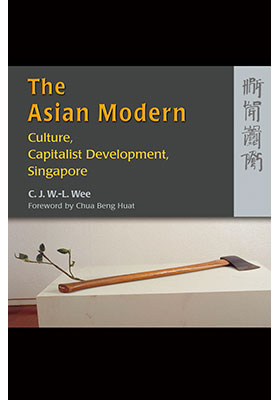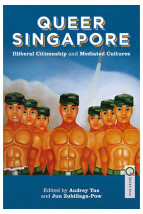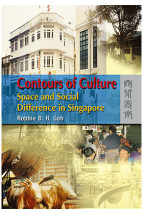The Asian Modern
Culture, Capitalist Development, Singapore
(現今亞洲:文化、資本主義的發展、新加坡)
ISBN : 978-962-209-859-6
October 2007
224 pages, 6″ x 9″
Not for sale in Thailand, Malaysia, Singapore, Brunei, or Indonesia
- HK$295.00
Ebooks
How does one comprehend the phenomenon of the modernization of an Asian society in a globalized East Asian context? With this opening question, the author proceeds to give an account of how the modernization processes for postcolonial societies in Asia, such as those of India, Malaysia, and Singapore, are fraught with collaborations and conflicts between different socio-political, historical, economic, and cultural agents. Such ambivalent dynamics contribute to what Wee argues as a ‘revealing distortion’ of the extant models of Western modernity, which is nonetheless rooted in the politics of worldwide capitalism.
Wee’s narrative refuses to accept the uncritical interpretation of the modernizing processes in Asia as liberation from the hegemony of Euro-American capitalism. But neither is Wee prepared to concede that all cultural initiatives in the postcolonial societies are, therefore, denied all power to devise alternative forms of expression in the face of this haunting presence. It is the persistent effort to see the many faces of modernization in Asia in their full complexity that sets this study apart.
Readers will discover that what seems to be the modernization of a single geopolitical entity is inevitably linked to the dynamics of various agents in other locations at different times, which makes us reflect on the existence of the many ‘distortions’ in our societies.
“Situating cultural studies in the midst of a complex array of ‘Asianizing’, ‘reethnicizing’, and ‘relocalizing’ forces, Wee has become a kind of Garcia-Canclini of the Pacific Rim, tracing a paradoxical situation in which ‘exuberant modernization’ in Singapore has gone hand in glove with a ‘deficient modernism’. The Asian Modern reveals a vibrancy of culture emergent in Singapore, as theater, literature, film, painting, and architecture come alive with all these tensions, masks, fabrications, and codes. No study tracks this portrait of global/local Singapore with greater scope, discursive richness, density of detail and cosmopolitical speculation than takes place in The Asian Modern.” —Rob Wilson, Professor of Literature, University of California, Santa Cruz, author of Reimagining the American Pacific and Waking in Seoul
“In this provocative study, C. J. W.-L. Wee interrogates conventional views of Singapore as undemocratically capitalist, incoherent urban, inauthentic modern – moving beyond cliché to plumb the unique, paradoxical exuberance of this off-shore cosmopolis. Official attempts to cultivate a bland pan-Asian identity here have inadvertently stimulated vibrant new forms of cultural production—genres of film and theatre, for example, that express a distinct, fractured ‘Singapore-Asian humanism’. In his revealing exploration of these forms, Wee convinces us that, in its particular mix of liberalization and constraint, pragmatism and poetry, Singapore also teaches us about the history of capitalist modernity at large.” —Jean Comaroff, Bernard E. and Ellen C. Sunny Distinguished Service Professor, University of Chicago, author of Body of Power, Spirit of Resistance: The Culture and History of a South African People
“The odd place of Singapore on the world historical stage of the late 20th century is the subject of The Asian Modern. Tracing the transformation of the city-state from a period of intense cultural homogenization in the 1960s–70s to one of managed multiculturalism and sanctioned pluralism in the 1980s–90s, Wee shows how the state sought to re-design a Singaporean ‘culture’, linked to the discourse of ‘Asian Values’, to match the demands of neo-liberalism while containing the criticisms of the West. However, Wee also points out, through careful attention to cultural artifacts such as architecture, film and especially theater, that the state’s attempt to oversee cultural production have proven to be uncertain and problematic. In illuminating this aspect of Singaporean history, Wee’s book makes an important contribution to our understanding of modernity as it is experienced and understood in East and Southeast Asia, and indeed in many other parts of the non-Western world.” —Vicente L. Rafael, Professor of History, University of Washington, author of The Promise of the Foreign: Nationalism and the Technics of Translation in the Spanish Philippines





